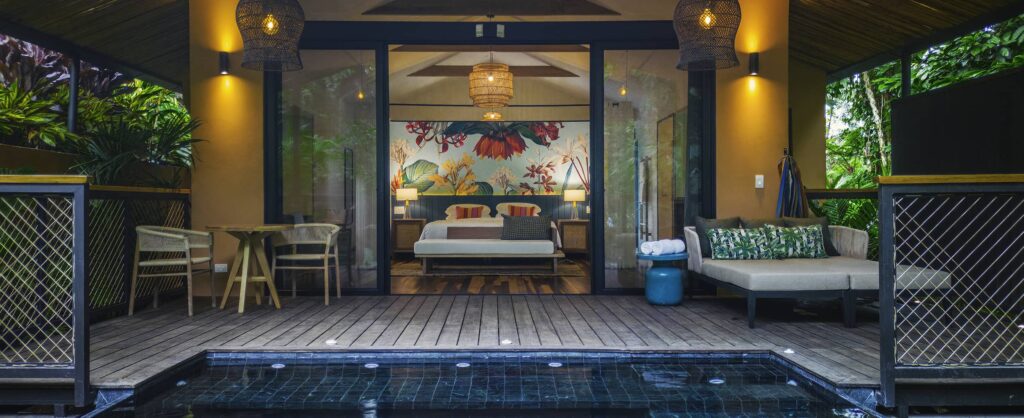Sustainability is a paramount concern across industries, and hospitality is no exception. Hotels are increasingly aligning their operations with eco-friendly practices to reduce their impact and meet the changing expectations of travelers.
Today’s travelers are more environmentally conscious than ever before, with many actively seeking accommodations that prioritize sustainability. According to Booking.com’s 2021 Sustainable Travel Report, 81% of travelers surveyed said they plan to choose a sustainable accommodation option in the upcoming year. For hotels and resorts, embracing eco-friendly practices is more than a moral imperative but also a strategic business decision to attract and retain guests.
Sustainability isn’t just about environmental responsibility; it’s also about efficiency and cost savings. Investments in measures like energy-efficient lighting, water conservation systems, and waste reduction initiatives can significantly lower operational costs in the long run.
That said, implementing sustainability initiatives and investments like these comes with a price tag, making it essential for these establishments to find innovative ways to fund their environmental efforts. By leveraging IDeaS’ solutions to optimize revenue streams, increase profits, and free up resources to reinvest in sustainability initiatives, Nayara Resorts is demonstrating how revenue management success can fuel environmental progress in hospitality.
Case in Point: Nayara Resorts and G3 RMS
Many hospitality businesses recognize the importance of their corporate social responsibility and are committed to making a positive impact on their communities and the environment.
One such company doing this is Nayara Resorts, with properties spanning across Central and South America. Nayara has embedded sustainability deeply within their ethos. Their commitment to initiatives like reforestation and social projects is integral to their brand identity. In our conversation with Leo Ghitis, the owner, and Constanza Navarro, the Director of Sales, Marketing, and Development, we explore how their collaboration with IDeaS fuels their environmental endeavors.
Ghitis is rightfully proud of the effort Nayara continuously makes to invest in projects that improve the natural settings and communities around them. He explains Nayara strives to have properties that are more than just an eco-tourism destination by embracing regenerative practices that work to restore the surrounding areas to their previous glory—an area they lead in. One such example is restoring what was once a barren mountain side to a thriving rain forest near their Tented Camp property in Costa Rica.
The restorative goals Nayara aims to achieve involve a significant financial investment.
“The only way we can do this is if the hotels are successful,” Ghitis said. “This is where IDeaS comes in and why we need to maintain a partnership.”
For Nayara, implementing G3 RMS led to better resource allocation, reduced waste, and streamlined operations, all of which align with their sustainability objectives.
Adopting G3 RMS can yield efficiency gains, including improved pricing strategies, optimized inventory management, better demand forecasting, and enhanced decision-making processes. These efficiencies can translate into reduced energy consumption, minimizing environmental impact from transportation or waste, and overall resource conservation.
“The impact on our revenues from implementing G3 RMS has affected all areas of the organization,” Navarro said.
“By analyzing data and trends, G3 RMS highlights areas for upselling, cross-selling, and dynamic pricing, maximizing revenue potential. The process reduces time-consuming tasks as the system looks into the future and adjusts accordingly,” Navarro explains.
“Optimized inventory management can reduce food waste in restaurants, while dynamic pricing can minimize over-discounting. These savings can then be reinvested into environmental initiatives such as renewable energy installations, waste reduction programs, or conservation projects.”
With the help of IDeaS, Nayara will continue to achieve Ghitis’s primary goals of being a force for good and sustainability.
Planting the Seeds for Growth
Automated revenue management systems offer a strategic pathway for hotels and eco-resorts to enhance their financial performance while simultaneously advancing their sustainability objectives. By leveraging G3 RMS to optimize revenue streams, these businesses can generate the necessary funds to invest in eco-friendly initiatives, thereby creating a virtuous cycle of profitability and environmental responsibility.
As consumer demand for sustainable travel continues to grow, embracing automated revenue management becomes not only a smart business decision but also a catalyst for positive change in the hospitality industry’s journey towards a greener future.
READ MORE| Nayara Resorts Streamlines Revenue Management and Achieves Record Growth
